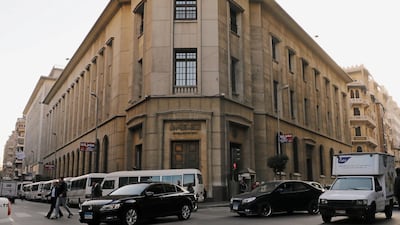The International Monetary Fund has said it will approve the payment of a further $2 billion of a $12bn loan to Egypt as the country undertakes tough economic reforms.
It cited accelerating growth and a declining current account deficit as reasons for the decision.
“Egypt has begun to reap the benefits of its ambitious and politically difficult economic reform program,” the IMF said in a statement.
The payment comes after a third review was carried out this month of the economic reforms agreed in late 2016. When the transfer is made, it will take the total amount paid so far to $8bn.
The statement said that while the fiscal reforms had “required sacrifices in the short-term” the reforms were critical to stabilise the economy and lay the foundation for strong and sustained growth to improve living standards for all Egyptians.
The IMF extended a $12 billion loan to the country in 2016 linked to a structural adjustment programme that required fiscal consolidation, fuel and electricity subsidy cuts, a tightened monetary policy and liberalised foreign exchange market.
The pound's value was halved, hitting many Egyptians hard, and new VAT was implemented. At the same time measures were taken to improve the business environment and better manage public finances.
________________
Read more:
IMF encourages Egypt to deepen economic reforms, pursue job creation
IMF agree on Egypt's $2 billion loan
Egypt PMI slips in March as inflationary pressure crimps demand
________________
According to the latest IMF statement Egypt’s growth continued to accelerate from 2017 to 2018, rising to 5.2 per cent in the first half of the year from 4.2 per cent in 2016 to 2017.
“The current account deficit has also declined sharply, reflecting the recovery in tourism and strong growth in remittances, while improved investor confidence has continued to support portfolio inflows” the statement said. “In addition, gross international reserves rose to $44bn by end-April, equal to seven months of imports."
Annual headline inflation has also declined from 33 per cent in mid-2016 to around 13 per cent in April, due to the monetary reforms put in place by the Central Bank Egypt.
“The CBE remains committed to reducing inflation to single digits over the medium term, with monetary policy underpinned by a flexible exchange rate regime that is critical for maintaining competitiveness and adjusting to external shocks,” the statement said, adding that Egypt’s banking sector remains liquid, profitable and well-capitalised.
The IMF executive board is yet to approve and sign off on the transfer of the latest $2bn instalment.


